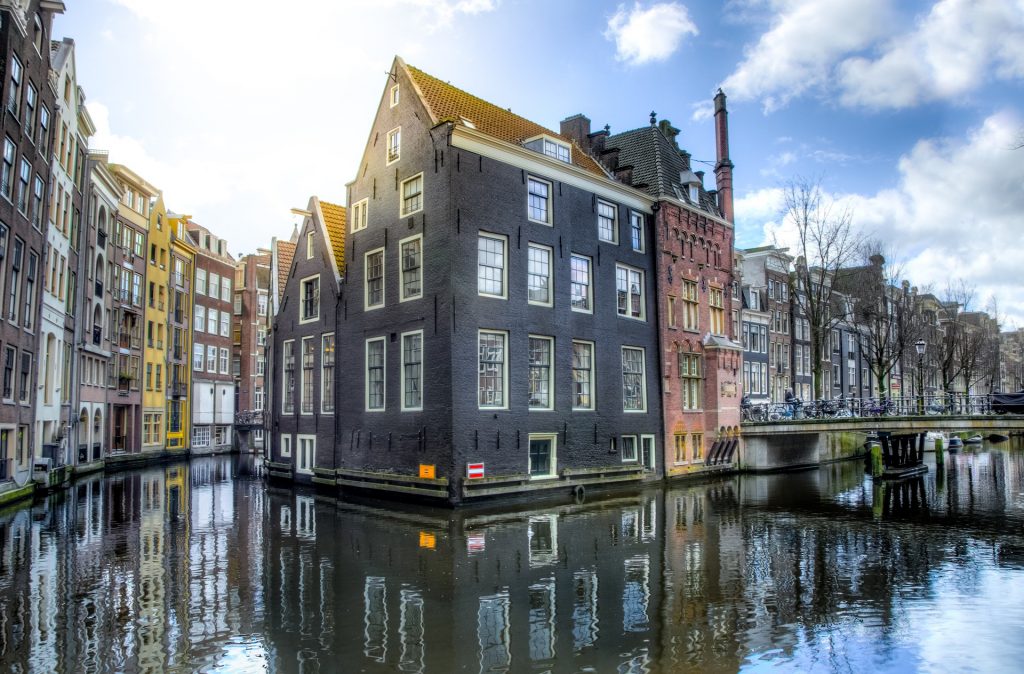Today ING announced that it will start steering its €500 billion lending portfolio towards meeting the climate goals of the Paris Agreement after developing a cutting-edge, precise method to do this with the 2˚ Investing Initiative (2˚ii). The Paris Agreement aims to keep global warming as a result of climate change to two degrees Celsius or below.
ING had been working for several years to figure out the best way to measure the climate impact of its lending portfolio. After piloting a financed-emissions approach that ultimately could not be used, ING sought alternative methods for measuring and steering.
In early 2018, ING partnered with 2˚ii to extend the initiative’s existing 2°C scenario analysis framework for equity and bond portfolios – the so-called Paris Agreement Capital Transition Assessment or PACTA tool – to corporate lending portfolios. As a result, 2˚ii and ING have together taken the lead and successfully developed a methodology that could become the standard for how international banks set science-based targets. ING calls this the Terra approach.
“We are delighted that a multinational bank such as ING helped us pioneer this methodology for financial service providers,” said Jakob Thomä, managing director of 2˚ii. “The methodology – and its resulting 2˚C-aligned portfolios – will be an important contributor to combating climate change. We hope other banks will follow suit and adopt it as well.”
Compared to other measurement approaches, this science-based approach could ultimately have a significant impact because it enables banks to direct their money towards financing technologies that support a low-carbon future instead of those that only measure a carbon-rich past.
The approach focuses on the sectors that produce the most greenhouse gas emissions. It also concentrates on the technology changes that companies in those sectors need to make in order to be aligned with the climate goals of the Paris Agreement. For example, it is not enough for automotive companies to lower emissions by producing fewer petrol-powered cars – they have to manufacture more electric cars too.
“Banks have a responsibility to finance change and we are stepping up to that,” said Isabel Fernandez, head of ING Wholesale Banking, who will announce the Terra approach in her speech at the Global Climate Action Summit in San Francisco today. “We believe the Terra approach will enable us to make a real difference.”
Like the PACTA tool, the Terra approach is open-source. ING is collaborating with other banks and stakeholders to encourage them to also work with this methodology.
“All banks will benefit from having an industry-wide standard, greater transparency on their alignment with the climate goals of the Paris Agreement and, as a result, collective effectiveness in fighting climate change,” added Fernandez.
To learn more about the Terra approach, please contact sustainability@ing.com or contact@2degrees-investing.org
Ends
For more information contact:
Marrika van Beilen
Media Relations
ING Group +31654257830
Marrika.van.beilen@ing.com
Nina Roehrbein
Head of Communications
2° Investing Initiative
comms@2degrees-investing.org
About ING
ING is a global financial institution with a strong European base, offering banking services through its operating company ING Bank. The purpose of ING Bank is to empower people to stay one step ahead in life and in business. ING Bank’s more than 52,000 employees offer retail and wholesale banking services to customers in over 40 countries. ING Group shares are listed on the exchanges of Amsterdam (INGA AS, INGA.AS), Brussels and New York Stock (ADRs: ING US, ING.N). Sustainability forms an integral part of ING’s strategy, which is reflected in ING’s ranking as a leader in the banks industry group by Sustainalytics. ING Group shares are included in the FTSE4Good Index and in the Dow Jones Sustainability Index (Europe and World), where ING is also among the leaders in the banks industry group.
About 2°ii
The 2° Investing Initiative (2°ii) was set up in 2012 with the mission to align financial markets with climate goals. It has since become a pioneering think tank – with offices in Berlin, Paris, London and New York – on the integration of long-term risks and policy objectives into financial markets and regulatory frameworks. Over the past few years, 2°ii has led one of the largest global research programmes on long-term risks in financial markets, working with over 50 research partners. A core principle of its mission is to reduce the transaction costs across companies, financial institutions and policymakers, while guiding financial markets towards the long-term future.


